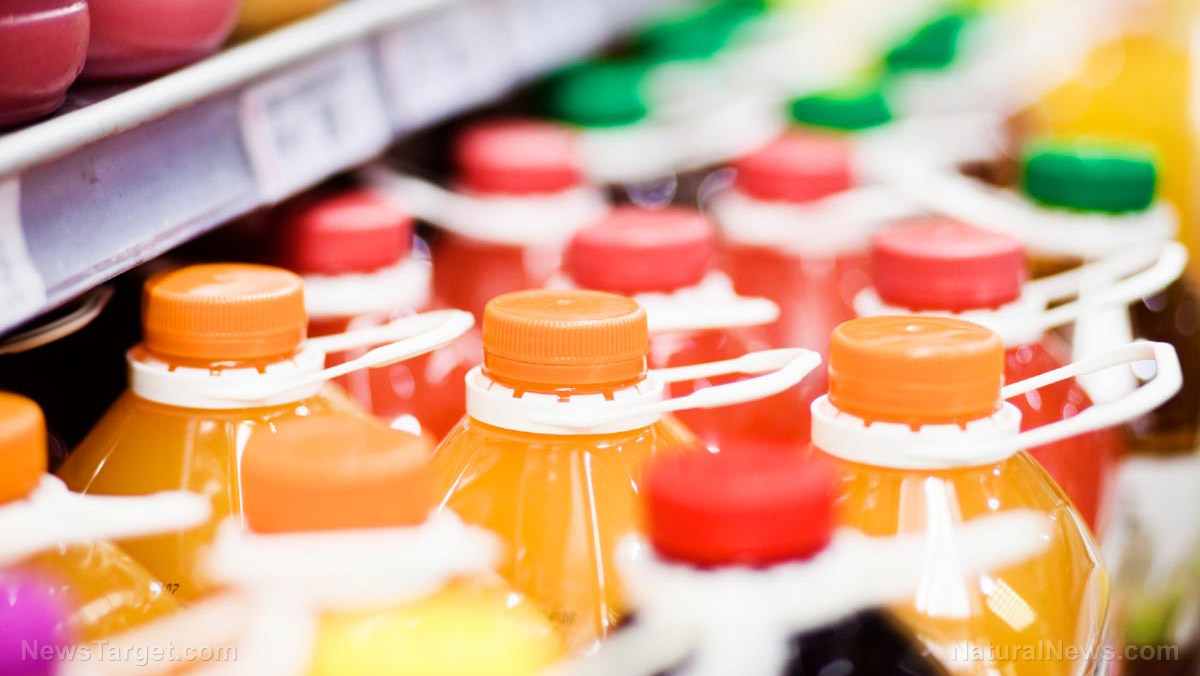Michelle Obama’s juice brand fails health standards set by her husband’s administration
06/05/2023 / By Zoey Sky

Michelle Obama, the wife of former U.S. President Barack Obama, is known for her health advocacy. However, products from her juice brand Plezi have failed health standards set by the Obama administration.
The finding is based on discussions with 12 independent health professionals and organizations.
Plezi juices contain “non-nutritive sweeteners”
After discussing with 12 independent health professionals and organizations, data showed that Plezi’s current flavors, which were released earlier this month, do not meet the requirements to be served at elementary and middle schools.
“Under the Obama-era school-meal regulations currently under review, U.S. elementary and middle schools may only serve water, milk or 100 percent fruit or vegetable juice with no added sweeteners (the regulations do permit schools to dilute juices with water) – and none of Plezi’s four current flavors meet these criteria,” a Bloomberg article stated.
Instead, all Plezi juices are sweetened with stevia and monk-fruit extracts, which the experts raised concerns over after dubbing them “non-nutritive sweeteners” and “potentially unhealthy.”
Although Plezi juices fail regulations because they’re sweetened and highly processed – processed foods lose most of their nutrient content during processing – studies beg to differ about the healthfulness of stevia and monk fruit.
According to a review by an international team of researchers, these natural sweeteners are not only safe for consumption but also possess antidiabetic, anti-obesity and other beneficial properties that make them excellent alternatives to artificial sweeteners and refined sugar.
On the other hand, the use of artificial sweeteners like aspartame (NutraSweet, Equal) and acesulfame potassium (Sunnett, Sweet One) has been linked to a higher risk of heart problems, including heart attack, and stroke.
However, earlier in May, the World Health Organization (WHO) published its own report advising against the use of sweeteners like stevia to control body weight. (Related: Build up your health with beet juice.)
Nutrition experts were critical of Michelle Obama for promoting a brand that may “ultimately be a less healthy option.”
Jerold Mande, a nutrition professor, explained that Michelle Obama “has been ill-served by advisers who convinced her to target 6- to 12-year-olds with a flashy, ultra-processed beverage that may not be any healthier than diet soda.”
Healthy drink options for kids
Most children prefer sweet beverages like soda and store-bought fruit juice. But guiding them towards more balanced options is important for their overall well-being.
If you’re having a hard time finding nutritious and appealing beverages for your kids, here are some delicious alternatives to consider:
Water
If your child says they’re thirsty, always offer water first. Water is essential for many bodily processes, such as temperature regulation and organ function.
In relation to body weight, children have greater water requirements than adults because the former have rapidly growing bodies and higher metabolic rates.
Unlike other beverages, water doesn’t contain liquid calories, making it less likely to cause your child to feel full and refuse to eat food. This is important if your kid is a picky eater.
Naturally flavored water
If your child thinks plain water is boring, he or she may end up hating this essential beverage. Thankfully, you can encourage your kid to drink more water without adding extra sugar and calories by infusing water with fresh fruits and herbs.
Try different flavor combinations until you find one that your kid likes. As a bonus, your child will get a boost of nutrition from the fresh fruit and herbs you add to the water.
Here are some tasty and refreshing combinations to try:
- Blueberries and raspberries
- Cucumber and watermelon
- Orange and lime
- Pineapple and mint
- Strawberries and lemon
Coconut water
While fresh coconut water contains calories and sugar, it’s still a healthier choice than other beverages like soda and sports drinks.
Coconut water also provides nutrients like magnesium, potassium and vitamin C, all of which are essential nutrients for children.
Additionally, coconut water contains electrolytes like calcium, magnesium, potassium and sodium, which are lost through sweat after physical activity. This means coconut water is the ideal hydration alternative to sugary sports drinks for active children.
If your child is sick with diarrhea or vomiting, you can give them coconut water to help them rehydrate.
When buying coconut water, check the label since some brands contain added sugars and artificial flavors. If possible, give children unsweetened coconut water.
Fruit and veggie smoothies
If your child is very picky about what they eat and drink, serving them smoothies is a delicious way to sneak fruits, vegetables and other healthy foods into their diet. However, you need to avoid premade smoothies, which are usually full of sugar.
Instead, give them homemade smoothies so you can control the ingredients. Smoothies are great for children who are picky eaters because you can easily blend vegetables like cauliflower, kale or spinach into a sweet-tasting smoothie that your child will enjoy.
Try these kid-friendly smoothie combinations:
Blend the ingredients with unsweetened non-dairy or dairy-based milk and try healthy add-ins like avocados, cocoa powder, ground flax seeds, hemp seeds or unsweetened coconut.
Don’t buy smoothies at grocery stores or restaurants because these often contain added sugar. Make homemade versions whenever possible.
Because smoothies are high in calories, it’s best to offer them as a snack or alongside a small meal.
Unsweetened milk
Many kids prefer sweetened milk drinks like chocolate or strawberry milk, but plain, unsweetened milk is the healthiest choice for growing children.
Plain milk contains various nutrients that are critical for the growth and development of young children. Milk contains calcium, phosphorus, protein and magnesium, all of which are essential nutrients for bone health.
Milk is also often fortified with vitamin D, another important vitamin for bone health.
Some parents prefer giving their children fat-free milk, but milk with a higher fat content may be healthier for younger children since they need fat for proper brain development and growth.
Unsweetened plant-based milks
If your child is intolerant to dairy milk, you can give them unsweetened plant-based milk as an alternative. Plant-based milk includes almond, cashew, coconut, hemp, rice and soy milk.
Like sweetened dairy milk, sweetened plant-based milks can contain loads of added sugar so it’s best to buy unsweetened versions.
Unsweetened plant-based milks can be served on their own as a low-calorie drink or as a base for kid-friendly smoothies, oatmeal and soups.
Avoid giving your children store-bought fruit juices that may contain added sugar and other harmful ingredients. Instead, give them healthy alternatives like water, coconut water or fruit and veggie smoothies.
Watch the video below to know more about the health benefits of beet juice.
This video is from the Health Ranger Store channel on Brighteon.com.
More related stories:
Reducing daily sugar intake to less than 6 teaspoons found to benefit overall health.
Drink beetroot juice and enjoy these health benefits.
Are juice fasts good for your health?
Sources include:
Submit a correction >>
Tagged Under:
clean food watch, deception, food science, frankenfood, grocery, Michelle Obama, monk fruit, nutrition, Plezi, products, stevia, stop eating poison, sugar, sugar intake, sweeteners, tips, toxic ingredients
This article may contain statements that reflect the opinion of the author
RECENT NEWS & ARTICLES
COPYRIGHT © 2018 DECEPTION.NEWS
All content posted on this site is protected under Free Speech. Deception.news is not responsible for content written by contributing authors. The information on this site is provided for educational and entertainment purposes only. It is not intended as a substitute for professional advice of any kind. Deception.news assumes no responsibility for the use or misuse of this material. All trademarks, registered trademarks and service marks mentioned on this site are the property of their respective owners.



















